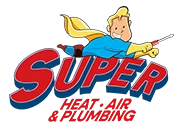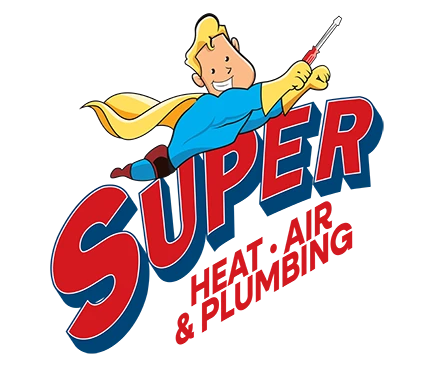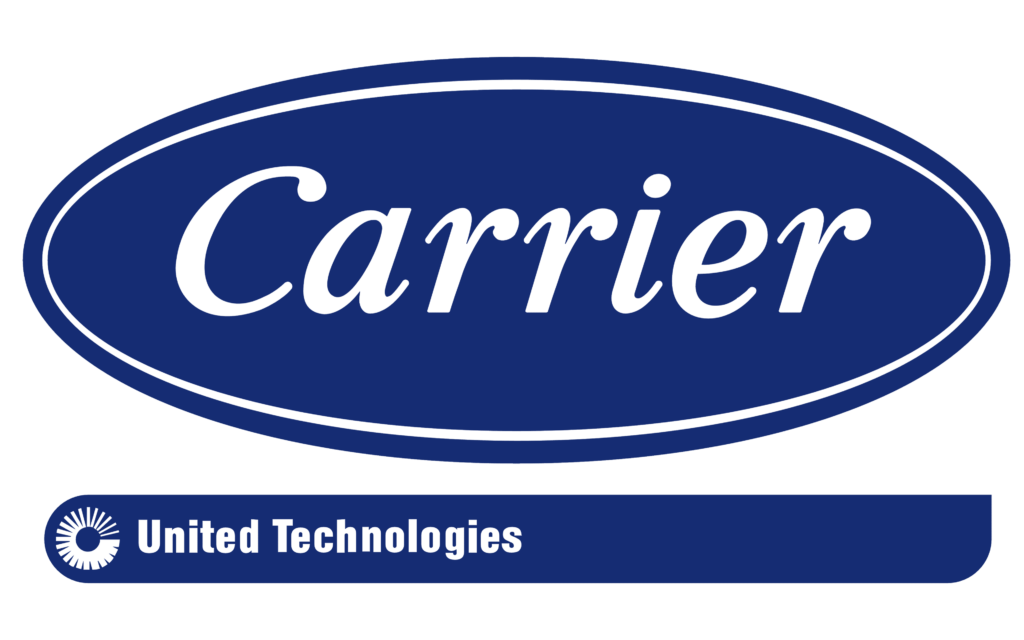It’s a hot summer day (here’s looking at you, Florida) and you notice that the air in your home isn’t cool, and the air coming from the registers is warm! What gives? Your top rated Tampa Bay AC repair company Super Heat, Air, and Plumbing has some tips on how to deal with an AC that is running but not cooling. And in the event that you need to call in the professionals, Super Heat, Air, and Plumbing has got you covered with fast 24 hour service!
We know how annoying it can be when you encounter an issue with your AC unit. It always seems to happen at the worst time right? Well before you stress too much, here are some things to check before you call in the AC pros!
Check the Thermostat
While this might seem too easy of a fix, sometimes the cause of an AC system running but not cooling is the result of someone accidentally switching the thermostat from “automatic” to “fan.” When the switch is on automatic, the thermostat is able to switch on the air conditioning when the indoor temperature rises above the preset temperature that you set on the thermostat. If the switch was set to “fan,” the unit would blow air through the duct system, but no cooling will take place. Take a moment to check and reset the switch to “automatic,” if necessary.
Dirty Filters
If you can’t remember the last time that you replaced the return-air filters in your AC system, they might be clogged and dirty, which can in turn affect air flow. When filters get clogged with pet dander and dust, the AC system isn’t able to draw sufficient air, and as a result, only a minimal amount of air flows out. Remove your air filter, and if you notice that it is dirty, replace it. But if it isn’t dirty, the problem lies elsewhere.
Clogged Condensation Drain
Part of an air conditioner’s job is to remove humidity from the air in your home, and that moisture must go somewhere! This is where the condensation drain hose comes into play—it directs water to a floor drain, or the outside of your home, depending on your system. Condensation drains are prone to blockage by mold or algae growth, and when this happens, some AC units will stop cooling, and others will shut down completely.
If you think this might be the issue, check the drain visually for clogs. If you do see a clog, carefully clear it out with the end of a screwdriver, or something small. If there is a clog higher in the line, suction on the end of the line will usually remove it. If you have a wet/dry shop-type vacuum this should be sufficient to unclog the drain.
Super Heat, Air, and Plumbing Tip: After removing a mold or algae clog from a drain hose, pour a couple of cups of white vinegar into the condensation pan that lies beneath the evaporator coils in the inside blower unit. The vinegar will kill residual mold buildup and help reduce future clogs.
Check Your Electrical Wiring
Nearly 85 percent of all HVAC repairs stem from electrical problems, so make sure that you examine all of the wiring within your unit, especially the wiring connected to an outlet. If you have a tripped breaker or a blown fuse, it is time to bring in an electrician!
Check Your Ductwork
The ducts snaking above the ceiling of your home function to deliver the cooled air where you need it most. If your ductwork is old, it might have cracks or might lack proper sealing. If this is the case, you most likely have a well-functioning air conditioning system. Inspect all seals to ensure that your ductwork is efficiently routing cold air throughout your house, and to its proper destination. If you notice any issues with your ductwork, it’s time to call in a HVAC professional to inspect and replace leaky or old ductwork.
Check Your Outside Unit
If the outside unit of your AC, ( the condenser,) is dirty or covered in debris, you will need to remove the blockage so it can release any build up of heat. If not, your AC unit will struggle to cool your home. The best way to clean the outside unit is to use a hose and gently spray the outside of the unit. Be careful though, be sure not to bend the aluminum fins inside the unit with high pressure water from the hose.
Know When To Call in the HVAC Pros
If you’ve gone through the above DIY steps and your AC system is still not cooling, the problem could be leaking refrigerant (Freon) or a failed compressor unit. Freon is federally regulated and may only be handled by an HVAC professional, like our techs at Super Heat, Air, and Plumbing. Unfortunately, a failed compressor, especially if your AC system is more than 10 years old, may signify the need to purchase a new system. These issues must be addressed professionals only, so make the call before trying to fix on your own!
AC Problems only a Professional Should Solve
A broken condenser fan: Without a properly working condenser fan, your outdoor unit will not be able to dissipate heat, and cool off your house.
Low refrigerant levels: Refrigerant is the liquid that absorbs heat from your home and cools it off. If you have ice buildup on the refrigerant line, or hear a hissing sound, you might have a leak. If you notice any of these things, turn off your AC immediately and call the pros at Super Heat, Air, and Plumbing. If you keep it on, it could damage your compressor.
Faulty Compressor: The compressor is the heart of the AC system, and moves refrigerant between the inside and outside units. Unfortunately, a damaged compressor is quite costly and it’s best to have a professional tech take a look if the compressor is the culprit.
We know how annoying it can be to be without cool air, especially in Florida during the summer months. If you are experiencing an AC running but not cooling, and cannot find an easy solution like the ones above, give the pros at Super Heat, Air, and Plumbing a call, 24 hours a day, and we will get your house back to cool in no time! Call to schedule a fast and easy appointment!



